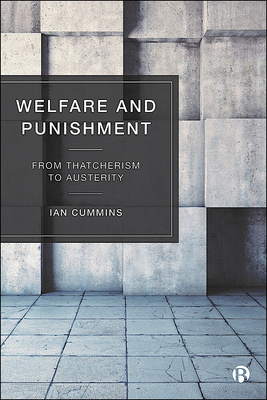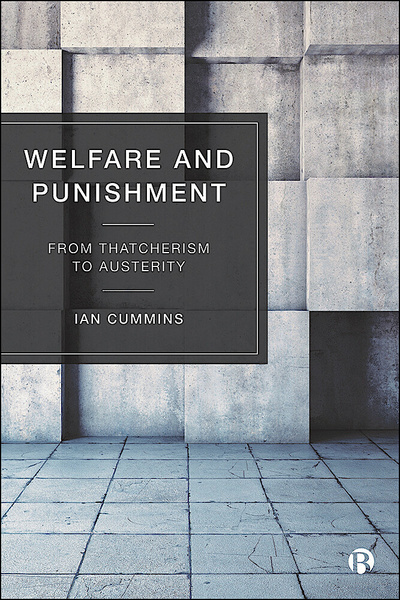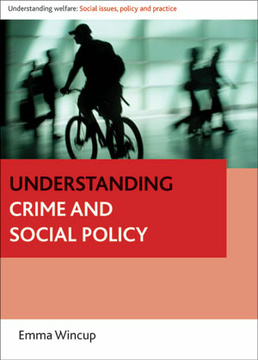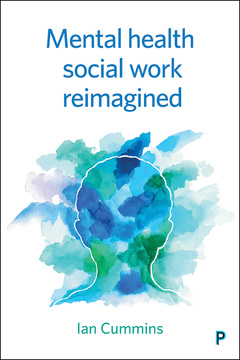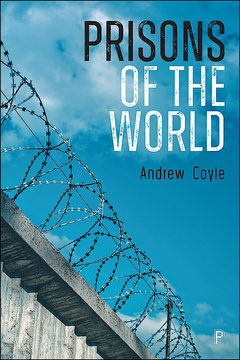Published
1 Aug 2022Page count
180 pagesISBN
978-1529203936Dimensions
234 x 156 mmImprint
Bristol University PressPublished
17 Feb 2021Page count
180 pagesISBN
978-1529203899Dimensions
234 x 156 mmImprint
Bristol University PressPublished
17 Feb 2021Page count
180 pagesISBN
978-1529203882Imprint
Bristol University PressPublished
17 Feb 2021Page count
180 pagesISBN
978-1529203882Imprint
Bristol University PressIn the media
On our blog: More Thatcherite than Thatcher: Understanding UK welfare and penal policy today
On our blog: ‘Defunding the police’: A mental health perspective
In this enlightening study, Ian Cummins traces changing attitudes to penal and welfare systems.
From Margaret Thatcher’s first cabinet, to austerity politics via New Labour, the book reveals the ideological shifts that have led successive governments to reinforce their penal powers. It shows how ‘tough on crime’ messages have spread to other areas of social policy, fostering the neoliberal political economy, encouraging hostile approaches to the social state and creating stigma for those living in poverty.
This is an important addition to the debate around the complex and interconnected issues of welfare and punishment.
"Through strong analysis and rich detail, this book is a critical invitation to readers to trace the intersection of politics and punishments, and to understand punishments in a broader context of political and public policy discourse.” Paul Taylor, University of Chester
“I always look forward to reading the work of Ian Cummins and here he provides an authoritative, accessible account of the evolution of toxic ‘welfare’ politics.” Paul Michael Garrett, NUI Galway
Ian Cummins is Senior Lecturer in the School of Health and Society at Salford University.
Introduction
Thatcherism and its Legacy
Welfare and Punishment in a ‘Stark Utopia’ (1979– 2015)
Contemporary Narratives of Mass Incarceration
Exploring the Punitive Turn
The Third Way in Welfare and Penal Policy
New Labour, New Realism?
Austerity and the Big Society
Conclusion: Citizenship and the Centaur State







